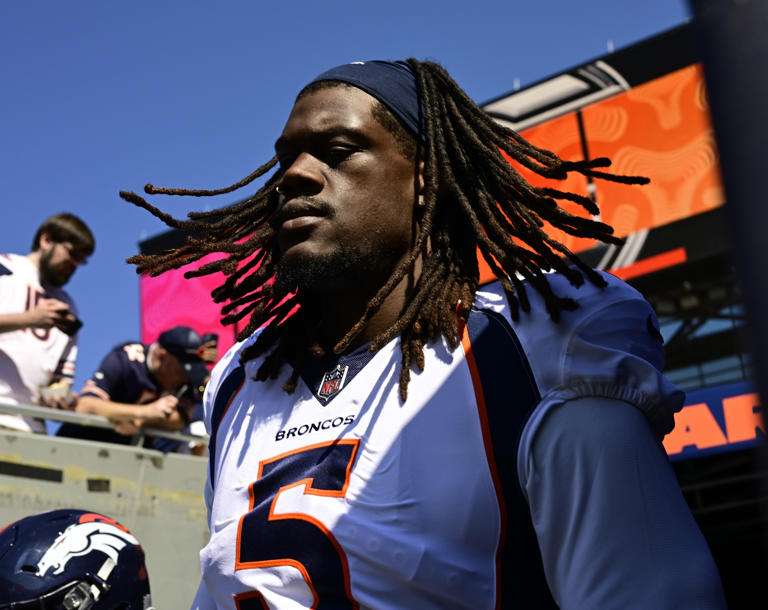Randy Gregory, the former pass-rusher for the Denver Broncos, has taken legal action against the NFL and his former team, alleging discrimination. Gregory claims that he has been unfairly fined over $500,000 in the past year for using medications to treat his disabilities, which include THC.
According to the complaint filed in Arapahoe County District Court and obtained by The Denver Post, Gregory states that he was prescribed Dronabinol to help manage his social anxiety disorder and post-traumatic stress disorder. While the NFL no longer suspends players for testing positive for THC, it remains a banned substance in the league, and positive tests can result in fines.
Although the Broncos are mentioned in the lawsuit, they are not responsible for imposing fines on players related to drug testing. The team abides by the NFL’s protocols for drug testing and the enforcement of rules outlined in the collective bargaining agreement between the league and the NFL Players Association.
The Denver Broncos declined to comment when contacted by The Denver Post on Thursday evening, while the NFL has not responded to a request for comment.
According to Randy Gregory’s agent, Peter Schaffer, this is a serious effort by Gregory to advocate for alternative methods of pain management in the NFL. Schaffer stated, “If a doctor prescribes hydrocodone, that’s completely legal and much worse for the player, yet the player doesn’t get suspended or fined. Randy’s not trying to go against the system, but he’s being fined $500,000 for something that anyone else in the state of Colorado can do. All we want is a reasonable accommodation to allow Randy to treat his disabilities under the guidance of his treating physician.”
The lawsuit, filed by attorney Spencer Kontik of Kontnik Cohen, alleges that Gregory requested an accommodation from the league but did not receive it. In March 2023, he initially sought permission from the Broncos and the NFL to use Dronabinol during his non-work hours, but his request was denied.
In May 2023, Schaffer made a request for a therapeutic use exception, but his application was once again rejected by Gregory.
According to the complaint, Gregory has been fined a total of $532,500 for multiple positive THC tests since March 2023. However, the exact number of fines and the proportion of those fines during his tenure with the Broncos are not specified in the lawsuit. Initially, players who test positive for THC are fined half a week’s salary, but the penalty increases with each subsequent positive test, eventually reaching a penalty of three weeks’ salary.
The lawsuit alleges that the league and club’s refusal to provide reasonable accommodations for Gregory’s diagnosed disabilities is discriminatory according to Colorado law. Gregory, who was diagnosed with social anxiety disorder in 2021 and post-traumatic stress disorder in February 2023, is seeking damages. After filing discrimination charges against the NFL and the Broncos in July 2023, Gregory was granted the right to sue by the Colorado Civil Rights Division in March.
Gregory has been transparent about his social anxiety for a long time. Additionally, he has faced multiple suspensions earlier in his career for repeated violations of the NFL’s drug policy. As a member of the Dallas Cowboys, he was suspended for 14 games of the 2016 season, as well as the entire 2017 and 2019 seasons. He was also suspended in 2018 and 2020.
In March 2022, Gregory inked a lucrative five-year deal worth $28 million with the Broncos. Unfortunately, his time with the franchise was cut short as he only managed to participate in 10 games. A knee injury sidelined him for a significant portion of the 2022 season. Consequently, the Broncos decided to trade him to the San Francisco 49ers in October 2023, following their intention to release the experienced player. Currently, Gregory has found a new home with the Tampa Bay Buccaneers, where he signed a one-year contract in April.
